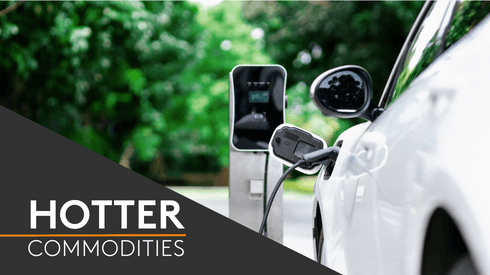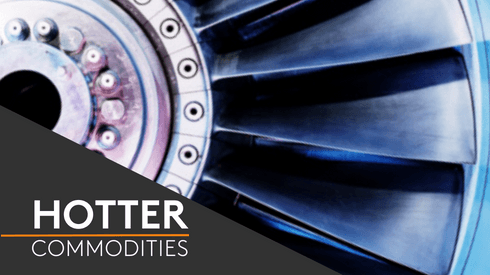Overall sentiment in the Chinese market remained bearish, sources added.
In the East Asia market, lithium hydroxide prices continued to trend downward amid weak fundamentals. While lithium carbonate prices showed a little strength amid improved liquidity, market participants did not believe this could be interpreted as the start of a rebound amid overall scarce demand.
Weak spot demand continues in China
Market participants reported weak spot demand for lithium from consumers over the past week, who continuously relied on long-term deliveries while their production rates remained low.
A Chinese lithium seller, who had spot sales of battery-grade lithium carbonate last week, told Fastmarkets that spot lithium demand was very weak, while most of the limited demand came from traders.
“Most of our sales came to the traders who were buying in preparation for physical delivery to Guangzhou Futures Exchange (GFEX)-registered warehouses as the settlement day for the January 2024 lithium carbonate contract approaches,” the Chinese lithium seller said.
“Although we had some sales to the end consumers, the volume is very small. Consumer demand was very thin,” the seller added.
Multiple cathode producer sources confirmed to Fastmarkets they did not have any spot demand for lithium salts.
The lithium carbonate futures prices on the GFEX in general were on a downtrend over the past week, further adding downward pressure to the spot market since spot prices are heavily influenced by the futures market.
The GFEX’s most-traded January 2024 lithium carbonate contract closed at 94,350 yuan ($13,253) per tonne on Thursday, down by 6,600 yuan per tonne by from the closing at 100,950 yuan per tonne a week earlier.
“Lithium producers in China still have large inventories,” a Chinese lithium producer source said, pointing to the downward pressure on the lithium prices.
Fastmarkets’ weekly assessment of the lithium carbonate 99.5% Li2CO3 min, battery grade, spot price range exw domestic China was 94,000-100,000 yuan per tonne on Thursday, down by 1,000-5,000 yuan per tonne from 95,000-105,000 yuan per tonne a week earlier.
Fastmarkets’ weekly assessment of the lithium hydroxide monohydrate LiOH.H2O 56.5% LiOH min, battery grade, spot price range exw domestic China was 85,000-100,000 yuan per tonne on Thursday, widening down by 5,000 yuan per tonne from 90,000-100,000 yuan per tonne a week earlier.
Lithium hydroxide continues downturn in East Asia
Lithium hydroxide prices in the East Asia continued to trend downward over the past week amid ongoing weak appetite for spot materials and the decrease of lithium hydroxide prices in China’s domestic market.
“I think the prices will remain soft in the near term, since the demand would remain weak and lithium producers still have large inventory. If I am to purchase more lithium salts in the near term, I will try to further press down the prices from the current level,” an East Asian consumer source said.
“For some reason Koreans are starting to inquire for January shipment of battery-grade lithium hydroxide,” an international trader said. “I think basically they want to take advantage of the current low prices but it’s their end of financial year in December, so they want shipment in January.”
But multiple other market participants continued to report weak spot demand for lithium hydroxide.
“I heard Korean consumers are still attempting to sell their lithium hydroxide stocks,” an international lithium producer source said.
Fastmarkets’ daily assessment for the lithium hydroxide monohydrate LiOH.H2O 56.5% LiOH min, battery grade, spot price cif China, Japan & Korea was $15.00-16.50 per kg on Thursday, unchanged from a day earlier, but down by $0.50-1.00 per kg from $16.00-17.00 per kg a week earlier.
Battery-grade lithium carbonate prices increased amid improved liquidity over the past week with two offers and a deal all reported at $16.50 per kg during the past week.
But market participants did not think that this meant the start of a rebound given that demand still remained weak.
“I don’t see rebound probably until the new year,” the international trader said.
Fastmarkets’ daily assessment for the lithium carbonate 99.5% Li2CO3 min, battery grade, spot prices cif China, Japan & Korea was $15.00-16.50 per kg on Thursday, unchanged from a day earlier, but widening upward by $0.50 per kg from $15.00-16.00 per kg a week earlier.
Lithium prices ‘relatively steady’ in Europe and US
Lithium prices in Europe and the US were relatively steady in the week to Thursday, with participants noting relatively quiet conditions in the region’s physical market while participants prepare for the end of the year.
Participants noted that prices for lithium chemicals, both technical grade and battery grade, remained closely aligned to prices in Asia with most noting the market was either at parity to a small premium.
Fastmarkets’ weekly assessment of the lithium carbonate 99.5% Li2CO3 min, battery grade, spot price ddp Europe and US was $16.00-17.50 per kg on Thursday, narrowing downward by $0.50 kg from $16.00-18.00 per kg a week earlier.
There was a slightly larger decline in hydroxide prices, following declines in East Asia with participants noting ample supply of material.
“There is ample material in the market currently to satisfy demand, therefore we have had to shift prices to reflect this,” a source in the region said.
Fastmarkets’ weekly assessment of the lithium hydroxide monohydrate LiOH.H2O 56.5% LiOH min, battery grade, spot price ddp Europe and US was $16.00-17.50 per kg on Thursday, down by $1 per kg from $17-18.50 per kg a week earlier.
Bearish sentiment raised in Asian markets was echoed in the West, with participants in the European market similarly not seeing any significant signs of directional change.
“I believe we will continue to see destocking [in the near term], demand is weak and will likely remain weak into the new year,” the source said.
“We expect an oversupplied market in 2024,” the source added.
Fastmarkets research forecasts a surplus of 3,800 tonnes of lithium carbonate equivalent (LCE) in 2024, with demand at 1,210,700 tonnes of LCE and supply at 1,214,500 tonnes of LCE.
Keep up to date with the latest lithium prices, data and forecasts on our dedicated lithium price page.






